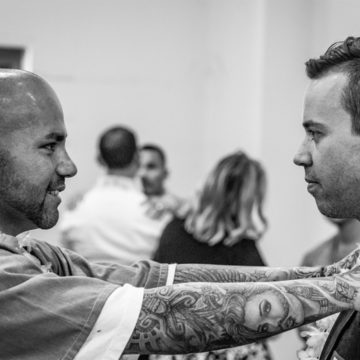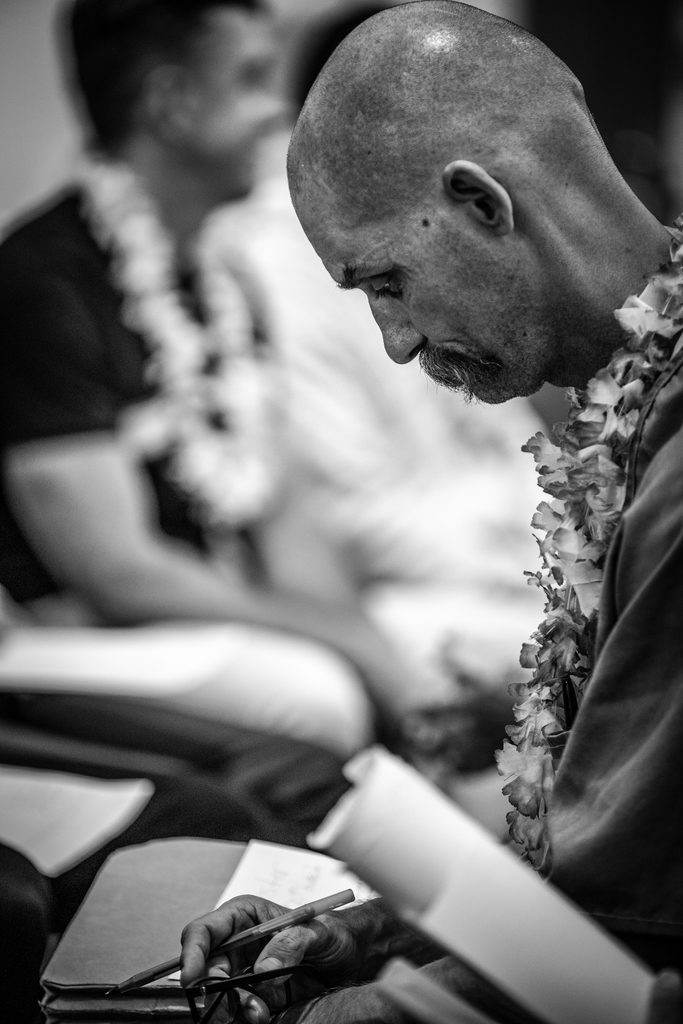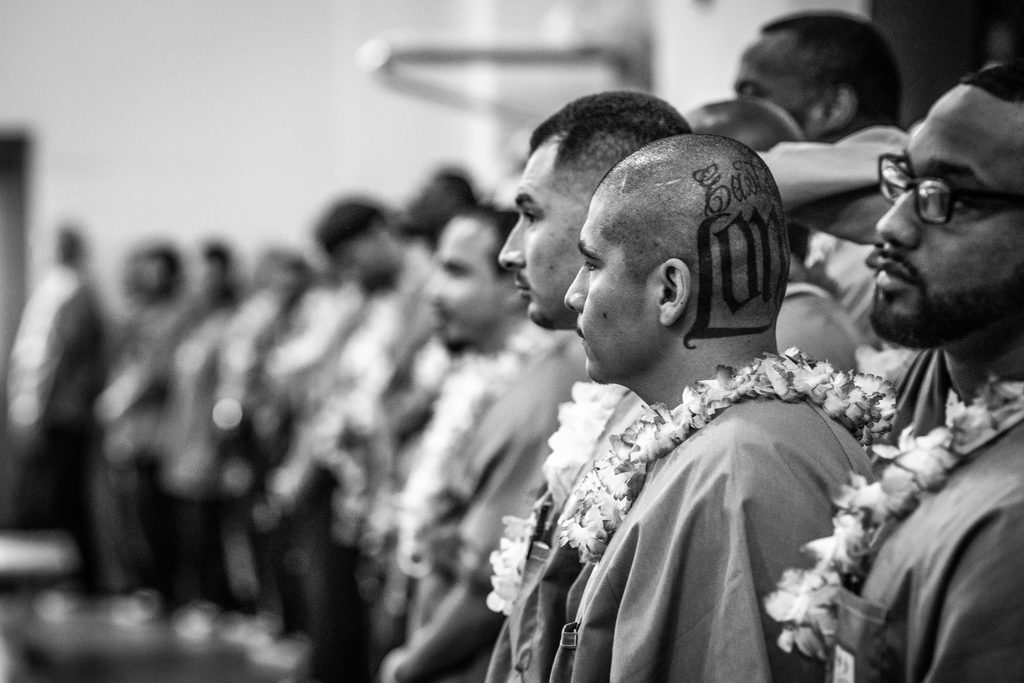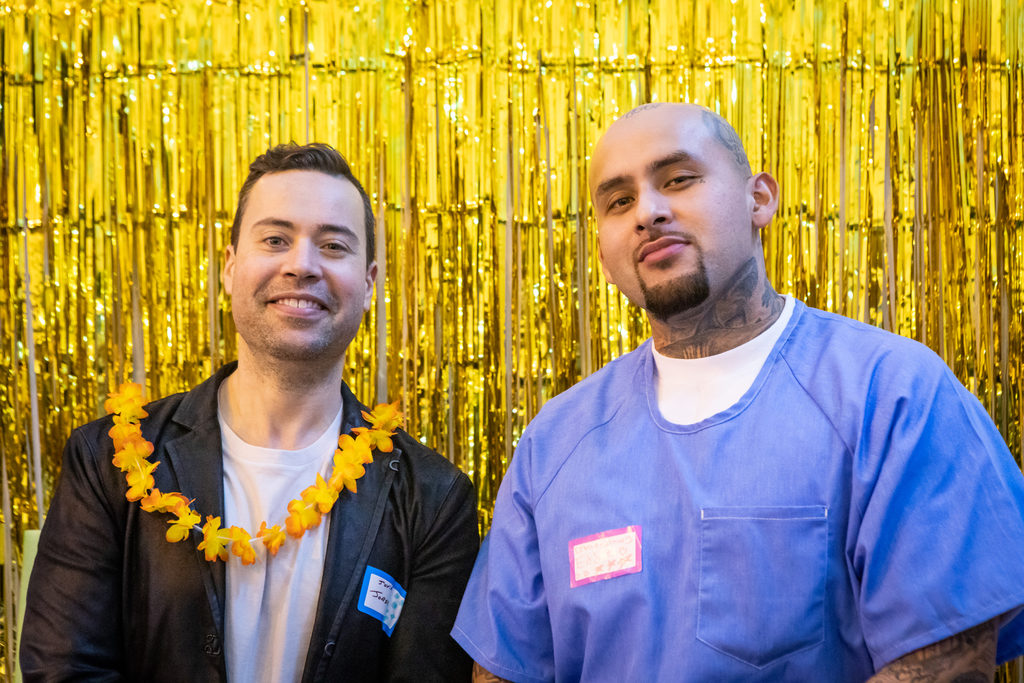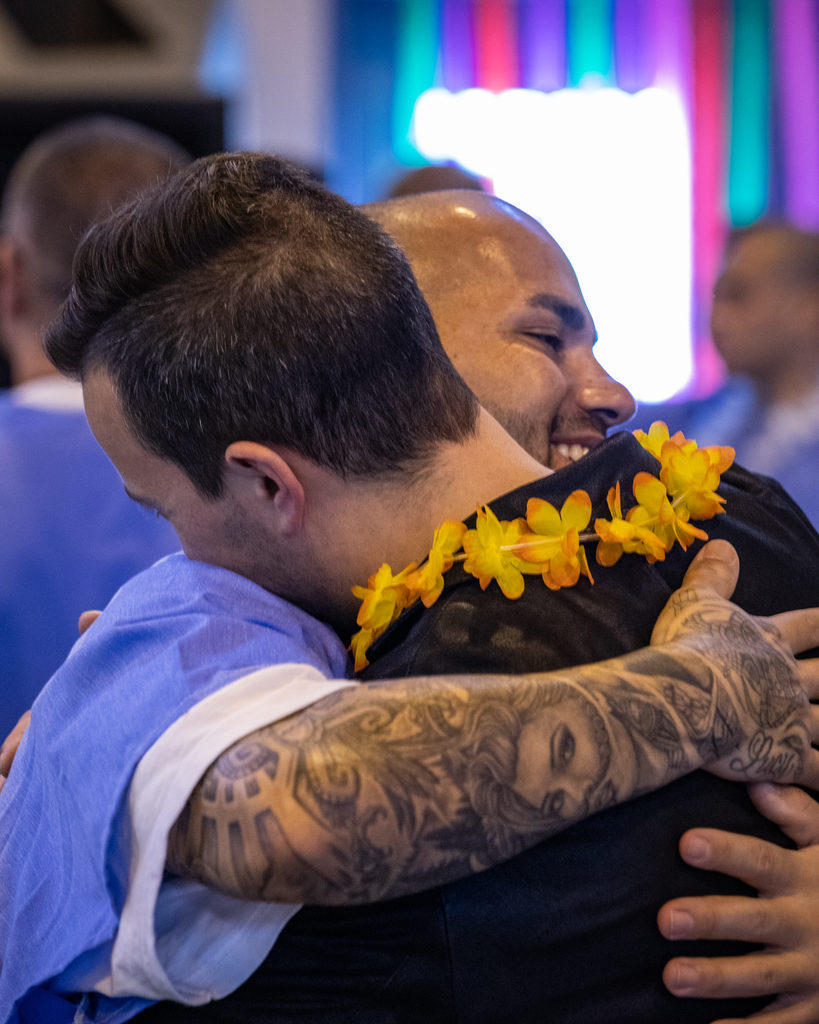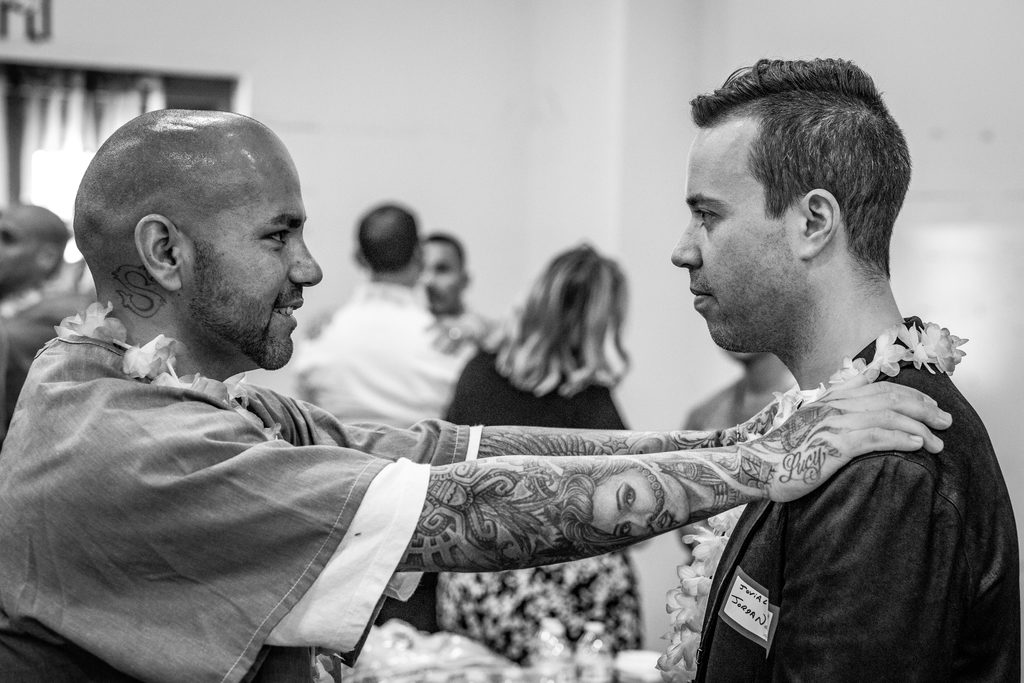A few weeks back, I helped teach a professional-development workshop for incarcerated men at a maximum-security prison in California.
Needless to say, it was a pretty intense experience. I worked with people determined to turn their lives around, but unsure if they could ever escape their pasts. I talked to people haunted by their decisions, but eager to use their stories as an example. I also sat with people who struggled to see the point of self-development at all. What good is self-improvement if your life will always be defined by a fatal mistake?
Spending the day with people whose lives have taken a tragic turn opened my eyes to some difficult and important truths — about our choices, our identities, and how much control we actually have over our lives.
On my way home, I turned over what I had heard and seen that day. I wanted to share it with you here, because it connects to everything we talk about on The Jordan Harbinger Show.
Starting with an uncomfortable truth we often overlook.
We are one event away from a terrible consequence.
Every incarcerated person — or “Maverick,” as Hustle 2.0, the program that organized our program, calls them — described how his life changed in an instant. One poor decision or unexpected turn, usually in the span of just a few minutes, turned their lives upside-down.
Experiencing a dramatic shift like that makes you realize just how fragile life really is. The relationships, events and systems that make up our lives seem incredibly stable, but that fabric can be torn easily and instantly — and not just by criminal behavior. A car accident, an unexpected diagnosis, a buried secret, a professional loss — these can all create a snowball effect that massively redefines our safety, prosperity and outlook on life.
We tend to overlook that, partly because these are low-probability events, but mostly because it’s just too overwhelming to admit. When we do, though, we remember how precious our lives really are. We value our friendships, security and opportunities. In short, we cultivate true gratitude, which is one of the pillars of a happy and meaningful life.
We all make choices, but some choices are predetermined.
One of the Mavericks I worked with was inducted by a local gang at the age of 10, supported and protected by the group, and coerced into gang activity before he understood the moral implications. In fact, his induction was so gradual, such a natural part of the world he was born into, that he had a hard time pinpointing the exact moment he officially became a gang member. If he had ever tried to leave the gang, he would almost certainly have been killed. So he stayed, and followed orders, and was eventually convicted of murder.
It’s easy to categorize people as good and bad based on a summary judgment of the choices they make. What we often don’t realize is that many people are placed from an early age in situations that are inherently dysfunctional and unfair — situations that severely constrain the kinds of choices they can actually make.
In some cases, the world they’re born into deprives them of real agency. They join a system in order to survive, often long before they understand the implications, and can’t escape without life-threatening consequences. Powerful variables — family histories, historical forces, the accident of birth, socioeconomic factors — effectively predetermine their “choices.”
And this principle doesn’t just apply to people with criminal histories. We are all products of our environment, opportunity, education and experience. Our cognitive biases make us attribute people’s behaviors to their characters, but in many cases, it’s actually circumstance that explains why people do what they do.
Acknowledging that simple truth helps develop true empathy. Experiencing the world as someone else does — and appreciating how their life experience has shaped their unique worldview — is a superpower in this complicated world. It allows us not only to judge strangers more fairly, but to relate to our friends, family and colleagues more compassionately. And when we have to make decisions that involve other people — whether it’s to continue a friendship, discipline a child or deliberate on a jury — that empathy allows us make them with as much data and understanding as possible.
We all have to tell difficult stories.
All of the Mavericks I met struggled with talking about their experience in job interviews. How do they explain the time they spent in prison? Should they talk about why they were incarcerated? Do they discuss the specific charges? And what tone should they strike when they do?
These are tricky questions for Mavericks in transition, who need to own their pasts without disqualifying themselves from opportunities. A lot of the work I did with my students focused on storytelling, so they could acknowledge their pasts openly, but frame their experiences in the most positive light. Part of this process was addressing their own inner conflicts about their potential and self-worth, and preparing for some of the tough questions they’d encounter in their job search.
But that challenge is not unique to people with felonies. The truth is, we all struggle with how to talk about ourselves. We all have aspects of our pasts that are painful, unsavory or shameful. We’ve all made mistakes in relationships, stumbled at work or come from dysfunctional families. Whether we’re on a first date, in a job interview or at a dinner party, we need to learn how to share these parts of our lives with other people if we’re ever going to be truly vulnerable.
What I learned in my sessions, however, was that good storytelling isn’t just a practical necessity. It’s also therapeutic. When my students found the words to articulate their experiences, they began to shift their relationships to their own pasts. When they opened up about shameful events, they started to give those events new meaning. I was reminded that when we own our worst mistakes, we create true accountability. But first we have to learn to acknowledge those parts of our stories — even (and especially) when it’s hard.
We could all be defined by the worst thing we’ve ever done.
While we’ve all made choices we’re not proud of — whether they’re explicitly illegal or not — only some people are punished publicly for those decisions. From that moment on, they’re defined by the worst thing they’ve ever done, usually for the rest of their lives.
Once again, remembering that fact is a powerful way to cultivate empathy. But it also helps inform the way we judge and manage other people, especially when we’re in positions of leadership. There’s a privilege and power that comes with that role, and when we’re in charge of someone else’s prospects, it’s important to remember how we might have behaved similarly in the past, and how our response can define the rest of their life.
As I drove home, I thought about what my life would be like if it were defined by the worst thing I’ve ever done. Just the prospect filled me with anxiety. Immediately, I was gripped by another realization — something I’ve been thinking about every day since my visit.
We have to make the most of our opportunities.
It’s incredibly difficult to visit a prison and think to yourself, “I’m just too smart to end up here.” All you have to do is listen to a few of the Mavericks’ stories to realize how much luck, privilege and opportunity — in addition to choices, values and goals — have played a role in your freedom.
With that realization comes empathy, perspective and gratitude. It’s a cliche, I know, but it’s a cliche because it’s true. At the risk of putting too fine a point on this, most of us are insanely fortunate. I’m starting to really appreciate how much we have to honor that privilege by acknowledging it — and by making the most of the opportunities afforded to us. What we often think of as the burden of responsibility would be the gift of freedom to people with criminal histories.
During our workshop, we did an exercise called Walk the Line. All of us — Mavericks and guests — stood on opposite sides of a line down the middle of the room as the moderator asked us various questions about our lives. If the answer was yes, we’d step up to the line. If the answer was no, we’d step back.
“Who here has lost a child?”
“Who here had a parent who was incarcerated?”
“Who here was arrested before the age of 10?”
When Mavericks and guests ended up far away from the line, I was confronted by a physical representation of our vastly different life experiences. But when we ended up nose-to-nose, I was surprised to discover how much experience we also had in common.
Our paths brought us face to face that day, but we ultimately returned to very different lives. As we parted ways, I reflected on the fact that we were separated not just by steel bars and concrete, but by the strange odds of luck, privilege and circumstance — a stark reminder of how consciously, how thoughtfully, we have to navigate this journey.
[Photos by Zark Fatah]

